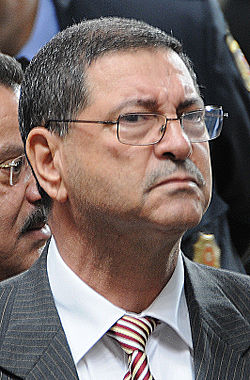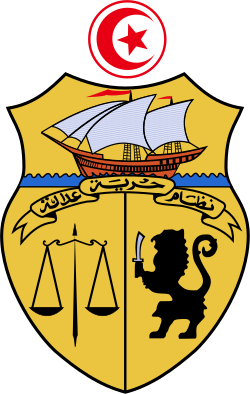| Office | Name | | Party |
|---|
| Head of Government | Habib Essid | | Independent |
| Minister of Defence | Farhat Horchani | | Independent |
| Minister of Justice | Mohamed Salah Ben Aïssa | | Independent |
| Minister of Interior | Mohamed Najem Gharsalli | | Independent |
| Minister of Foreign Affairs | Taïeb Baccouche | | Nidaa Tounes |
| Minister of Economy and Finance | Slim Chaker | | Nidaa Tounes |
| Minister of Tourism and Handicrafts | Selma Elloumi Rekik | | Nidaa Tounes |
| Minister of Industry, Energy and Mining | Zakaria Hamad | | Independent |
| Minister of Agriculture | Saâd Seddik | | Independent |
| Minister of Commerce | Ridha Lahouel | | Independent |
| Minister of Social Affairs | Ahmed Ammar Younbaii | | Independent |
| Minister of Higher Education, Scientific Research and ICT | Chiheb Bouden | | Independent |
| Minister of Education | Néji Jalloul | | Nidaa Tounes |
| Minister of Health | Saïd Aïdi | | Nidaa Tounes |
| Minister of Transport | Mahmoud Ben Romdhane | | Nidaa Tounes |
| Minister of Equipment, Housing and Regional Planning | Mohamed Salah Arfaoui | | Independent |
| Minister of Employment and Vocational Training | Zied Ladhari | | Ennahda |
| Minister of Religious Affairs | Othman Battikh | | Independent |
| Minister of Women, Family and Children | Samira Merai | | Afek Tounes |
| Minister of Culture | Latifa Lakhdar | | Independent |
| Minister of Youth and Sports | Maher Ben Dhia | | UPL |
| Minister of Environment and Sustainable Development | Nejib Derouiche | | UPL |
| Ministry of Communication Technologies and the Digital Economy | Noomane Fehri | | Afek Tounes |
| Minister of Development, Investment and International Cooperation | Yassine Brahim | | Afek Tounes |
| Minister of State Property and Land Affairs | Hatem El Euchi | | UPL |
| Minister to the head of government in charge of relations with Parliament | Lazhar Akremi | | Nidaa Tounes |
| Minister to the head of government in charge of Relations with the constitutional institutions and civil society | Kamel Jendoubi | | Independent |
| Chief Cabinet Secretary | Ahmed Zarrouk | | Nidaa Tounes |
| Secretary of State for Security Affairs | Rafik Chelly | | Independent |
| Secretary of State for Local Affairs | Hédi Majdoub | | Independent |
| Secretary of State for Foreign Affairs | M'hamed Ezzine Chelaifa | | Independent |
| Secretary of State for Arab and African Affairs | Touhami Abdouli | | Tunisian National Movement |
| Secretary of State for Finance | Boutheina Ben Yaghlane | | Ennahda |
| Secretary of State for Development, Investment and International Cooperation | Lamia Zribi | | Independent |
| Secretary of State for International Cooperation | Amel Azzouz | | Ennahda |
| Secretary of State for Emigration and Social Integration | Belgacem Sabri | | Independent |
| Secretary of State in charge of the Dossier of the Martyrs and Wounded of the Revolution | Majdouline Cherni | | Independent |
| Secretary of State to the Minister of Health in charge of upgrading hospitals | Nejmeddine Hamrouni | | Ennahda |
| Secretary of State to the Minister of Youth and Sports in charge of Youth | Chokri Terzi | | Independent |
| Secretary of State to the Minister of Agriculture, Water Resources and Fisheries in charge of Agricultural Production | Amel Nafti | | Independent |
| Secretary of State to the Minister of Agriculture, Water Resources and Fisheries in charge of Fisheries | Youssef Chahed | | Nidaa Tounes |
| Secretary of State to the Minister of Equipment, Housing and Regional Planning in charge of Housing | Anis Ghedira | | Nidaa Tounes |
|

